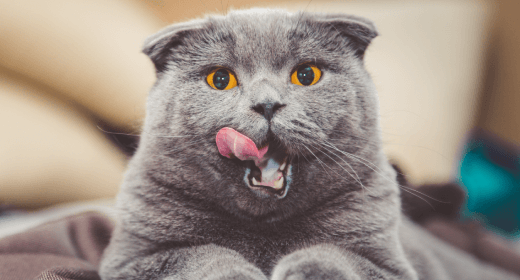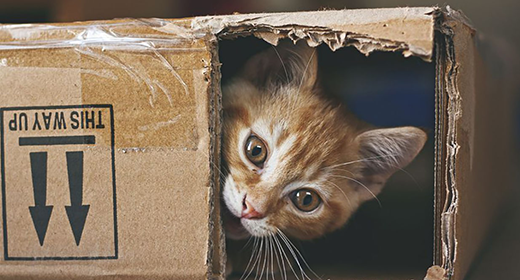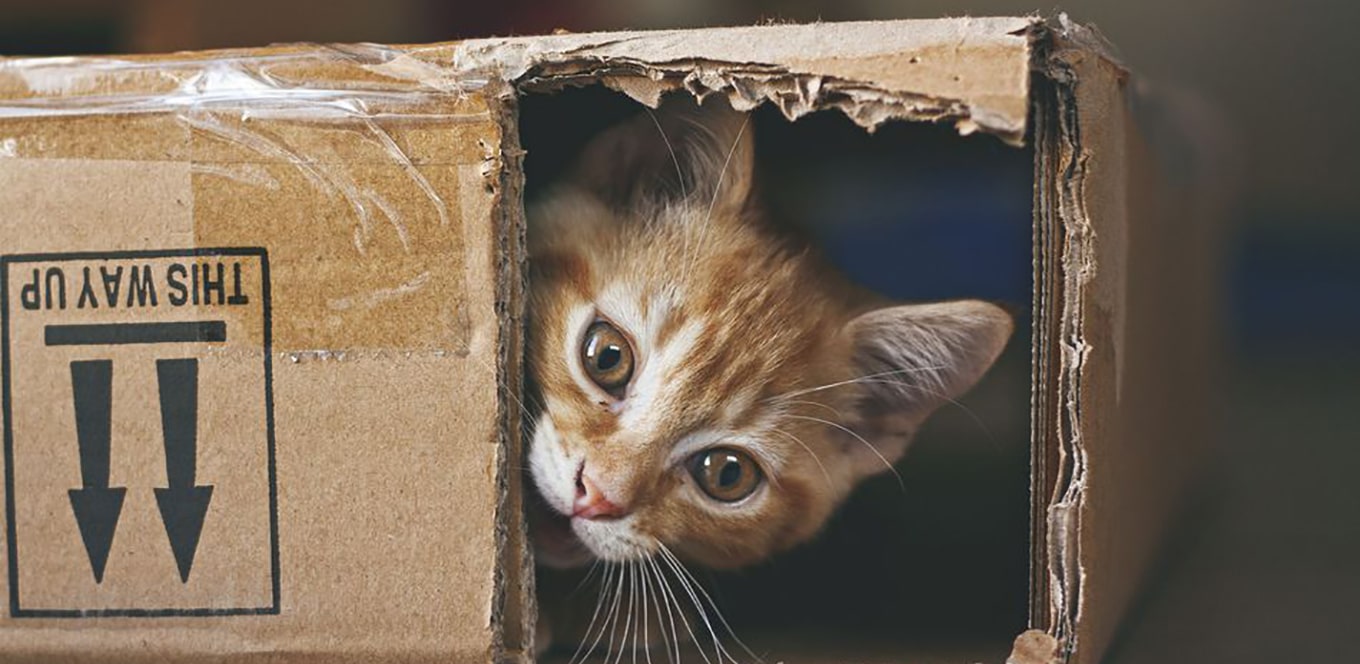

According to a recent study, a cat's taste buds are very different compared to other animals. They possess more receptors for bitterness than sweetness, this makes most cats very finicky and picky about what they eat. Lack of poor eating habits can thus lead to poor nourishment and unhealthy development. Hence, cat parents are required to pay special attention to what their kitties eat, how much they eat, and how often. Feeding them a bowl full of treats and meals is not enough, caregivers also need to consider the nutritional value of their feline friend’s meal.
Choosing the right cat food to provide an adequate amount of vitamins for cats is important. Besides, being carnivorous animals, cats prefer animal-based products over the plant-based ones. IAMS cat food is high-quality animal-based protein that includes essential amino acids required for your kitty’s nourishment.
Cats need specific nutrients for appropriate growth and development. Components like vitamins, minerals, protein, fiber, carbohydrates, and fat are some of the essential nutrients present in good-quality cat food. Cats can get most of these nutrients from food like dairy, bone meal, legume plants, animal organs, and dietary supplements. The following are the necessary cat food nutrients to look for:
Look for the following to ensure you only invest in the best meals for your cats when buying cat food:
You can also choose IAMS cat food to feed your kitty a complete and nourishing meal. IAMS cat food contains unique fatty acids that result in healthier skin, shiny fur, adequate membrane structure, and improved health. Besides, the fermented fiber present in IAMS products improves intestinal health by boosting your kitty’s digestive and gastrointestinal functions.
With our wide range of cat foods, you can choose the one that fits your pet’s needs and preference. IAMS Proactive Health Healthy Adult is made with love to ensure your cat has a shiny coat, healthy skin, and strong muscles. It comes in different flavors like Chicken, Tuna and Salmon Meal as well as Chicken and Salmon Meal.
If you are concerned about issues like unhealthy weight and hairball, you can include IAMS Proactive Health Indoor Weight and Hairball Care. It is loaded with L-carnitine, natural fiber and high-quality protein for weight management and hairball care.
The following are some essential minerals for cats:
Cats need potassium for nerve function, muscular contraction, and heart rhythm as this mineral is an electrolyte.
Calcium is an important mineral for bone and teeth growth.
This mineral ensures muscle contraction, provides hydration, and powers nerve impulses.
Sodium and chloride work together as electrolytes to maintain acid-base balance, muscle contraction, nerve impulse transmission, and hydration.
This mineral is essential for your metabolism and vital growth. It also supports your teeth and bone health.
Cats need iron for transporting energy in their bodies.
This mineral works in conjunction with vitamin E and works as an essential antioxidant.
Cats require copper for bone growth, skin pigmentation as well as the absorption and transportation of iron.
This mineral is significant for enzyme function and digestion of proteins, fats, and carbohydrates in cats.
Another essential mineral for cats is zinc. They need it for metabolising lipids, protein, nuclei, and carbohydrates.
This mineral for cats is important for the development of thyroid hormones.
A lack of vitamins can result in the abnormal functioning of essential enzymes in cats. Hence, vitamins are important for its healthy growth and development. The following are some of the most essential vitamins for cats:
This vitamin improves the cat’s vision, bone, dental, reproduction, mucous membrane, and skin health. Kittens and pregnant cats need more vitamin A compared to adult and senior cats.
Cats need vitamin B12 for metabolising fat and carbohydrate. This vitamin is also necessary for a cat’s nerve conduction.
Cats require a minimum of 280 IU of vitamin D per kilogram of food as this vitamin helps in improving their calcium and phosphorous levels. Both calcium and phosphorous are necessary for better bone density, hence vitamin D is one of the most essential vitamins for cats.
Every adult cat should consume at least 1 to 3 IU of vitamin E per day as this vitamin is an essential antioxidant that protects them from cell oxidative damage.
Cats need very little vitamin K for preventing their blood from clotting.
This vitamin is necessary for releasing energy from fats, protein, and carbohydrates. Riboflavin deficiency may result in anorexia, bilateral cataracts, fatty liver, testicular hypoplasia, and periauricular alopecia.
It improves carbohydrate metabolism in cats. Lack of this vitamin may result in weight loss, vomiting, neurological distress, impaired vision, dilated pupils, vestibular signs, and seizures.
Niacin deficiency may result in fever, oral mucosa, tongue ulcer, and weight loss. This vitamin is essential for breaking down fats, carbohydrates, and proteins present in food.
Important for the synthesis of DNA and methionine (an amino acid), folic acid deficiency may cause anemia, weight loss, and leukopenia.
This vitamin is necessary for digesting amino acids, glucose, and fatty acids.
Biotin deficiency may cause skin issues in cats. This vitamin helps in the formation of fatty acids, certain amino acids, and DNA/RNA in cats.
Choline is an important neurotransmitter for the cell membranes and lipid.
Therefore, when buying cat food for your feline friend, make sure to check if it contains all the necessary nutrients to aid their better growth and development. You can also buy supplements to provide the necessary vitamins for cats. However, it is best to consult a veterinarian before choosing a new cat food brand or supplements for added vitamins and minerals for cats.
Some essential vitamins for cats include vitamin A, vitamin B12, vitamin D, vitamin K, vitamin E, niacin, biotin, and folic acid.
Cats absorb most of their mineral requirement from the food they consume. Cat food containing meat, liver, cereals, and fish are some of the good sources of minerals for cats.
Cats usually absorb all necessary vitamins from the food they eat. So, it is better to feed them a nourishing meal over vitamin supplements. Cats may need vitamin supplements only in case of deficiency. Please consult a veterinarian for more guidance on the same.
Cats need trace minerals like iron, copper, zinc, and manganese in very small quantities. They ideally depend on their daily diet for getting these minerals.
Cats ideally do not need additional supplements as they can absorb all necessary vitamins and minerals from their meal. However, it is best to consult a veterinarian doctor to know which supplement can be beneficial for your kitty.


Understanding and learning how to decipher kitten food product codes will help you choose the right kitten food. While selecting the right ingredients is important, making sure those ingredients are fresh is just as vital to your young cat. Learn how to read the product codes of kitten food packages and cans with our handy guide.
A product code is a series of numbers and letters printed on the outer package of each product a manufacturer produces. This code provides information about when and where the kitten food was made.
As part of the product code, IAMS™ products include a “Best Used By” date, or the date at which the product is no longer considered fresh and should no longer be sold. This date is expressed in “ddmmyy” and “ddmmmyy” formats.
The second line of the product code represents company internal information for use in traceability and inventory control.
Line 1: (ddmmyy) (ddmmmyy)
Example: 040220 04FEB20
Line 2: 60351111## QQQQQQQ
This product should be used before February 4, 2020.
Depending on the production line, pouch products* may have code date information in a single or double line. By recognizing and understanding these codes, customers can make sure they are receiving a fresh product.
Shelf life is the duration, measured in months, during which a properly stored kitten food product maintains its freshness. This means if a product has a 16-month shelf life, it is fresh for up to 16 months from the date of manufacture.
The shelf life for IAMS dry kitten foods is 16 months. All canned formulas have a shelf life of 24 months.
Unopened dry kitten food products are best stored off the floor in a cool, dry place. Open bags of kitten food should be stored in a clean, dry container with a tight seal. Dry kitten food products may also be frozen without loss of nutrients.
Opened wet kitten food products are best kept refrigerated in tightly sealed containers for no more than three days after the container has been opened. Wet products should not be frozen in unopened cans. However, wet kitten foods can be frozen if removed from the container, packed in freezer containers and frozen immediately.
*IAMS has no kitten pouch products at this time.
